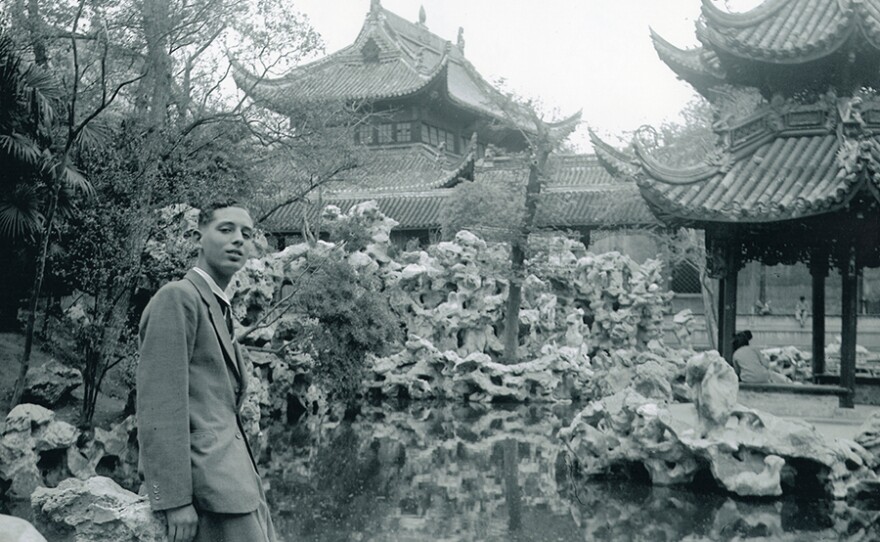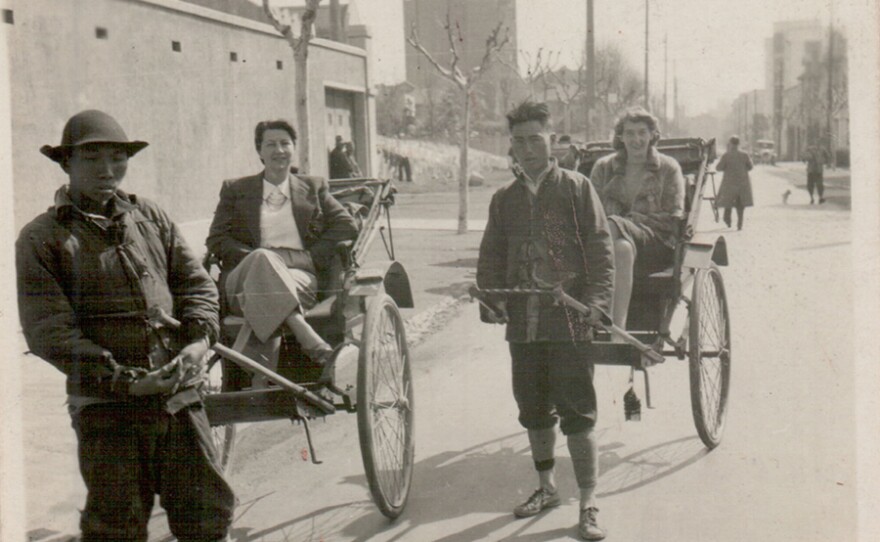—Holocaust Story of Hope Shines Light on Story of European Jews Finding Refuge in Shanghai During World War II—
“Harbor From The Holocaust” shares the story of 20,000 Jewish refugees who fled Nazi-occupied Europe during World War II to the city of Shanghai. The one-hour film explores the extraordinary relationship the refugees, known as “Shanghailanders,” had with their adopted city, through the bitter years of Japanese occupation 1937-1945 and the Chinese civil war that followed.
Through personal recollections, interviews with historians, archival footage and music, the documentary tells the story of a group of people who, in tragic contrast with those who could not escape, were given a second chance.
“This is a Holocaust story of life — not easy, not without loss and hardship — but perhaps one that is largely unknown but for the people who can still share their view of survival,” says Executive Producer Darryl Ford Williams. “There is a contemporary context that is undeniable in reflecting on this narrative of people who found a way to live when country after country around the world closed their borders and turned their backs on those in need.”
Taking a captivating look at this moment, “Harbor From The Holocaust” reveals why Shanghai was uniquely positioned, through geo-political, cultural and historical influences, to allow this remarkable influx to happen, due to those past relations with Jews predominantly from the Middle East, the Iberian Peninsula and Russia, and because of its centuries of control by and openness to foreigners as a vigorous center of trade and commerce.
Through extraordinary recollections, the film highlights the stories of exceptional artists, statesmen and authors, as well as ordinary people who survived to carry on their Jewish religion and traditions.
The story, much like the city itself, is nuanced and complex, incorporating many kinds of foreigners, many classes of Chinese, many kinds of Jews, and many layers.
Shanghai was not a place of tolerance and openness, so much as it was a place of fractionalized, disparate forces, which were sometimes competitive and sometimes complementary, but always existed within tenuous and often difficult transactional alliances.

Even the people whose stories are shared have varying tales of how they lived in Shanghai, what their families experienced, and how they were able to function on a day-to-day basis.
Music plays an important role in the film evoking the time, the fear, the pain and the joy of the “Shanghailanders.” Orchestrated by musician and composer Chad Cannon, one of the special musical moments is a duet with violinist Niv Ashkenazi and guzheng player Beibei Monter. Ashkenazi performs on a “violin of hope,” a violin that survived the Holocaust and was restored.
Of note, Yo Yo Ma also performs a piece for the film that was composed by his father entitled “Poème pour Violoncelle et Orchestre.” Ma’s father, Hiao-Tsuin Ma, studied with a great Chinese violinist in Shanghai. He taught at Nanjing University but continued his studies in Shanghai.
Ultimately, he followed his teacher’s musical path to Paris, but the seeds of this composition were rooted in his experience in Shanghai as were the life stories of the “Shanghailanders.”
Watch On Your Schedule:
This film is available to stream on demand through Oct. 6, 2020.
With the PBS Video App, you can stream your favorite and local station shows. Download it for free on your favorite device. The app allows you to catch up on recent episodes and discover award-winning shows.

Credits:
A production of WQED. The executive producer is Darryl Ford Williams. The producer and director is Violet Du Feng. The editor is Michelle Chang. Orchestration by Chad Cannon. Funding is provided by the Corporation for Public Broadcasting; the National Endowment for the Humanities; The Philip Chosky Charitable and Educational Foundation; The Posner Foundation of Pittsburgh; PBS and public television viewers.





